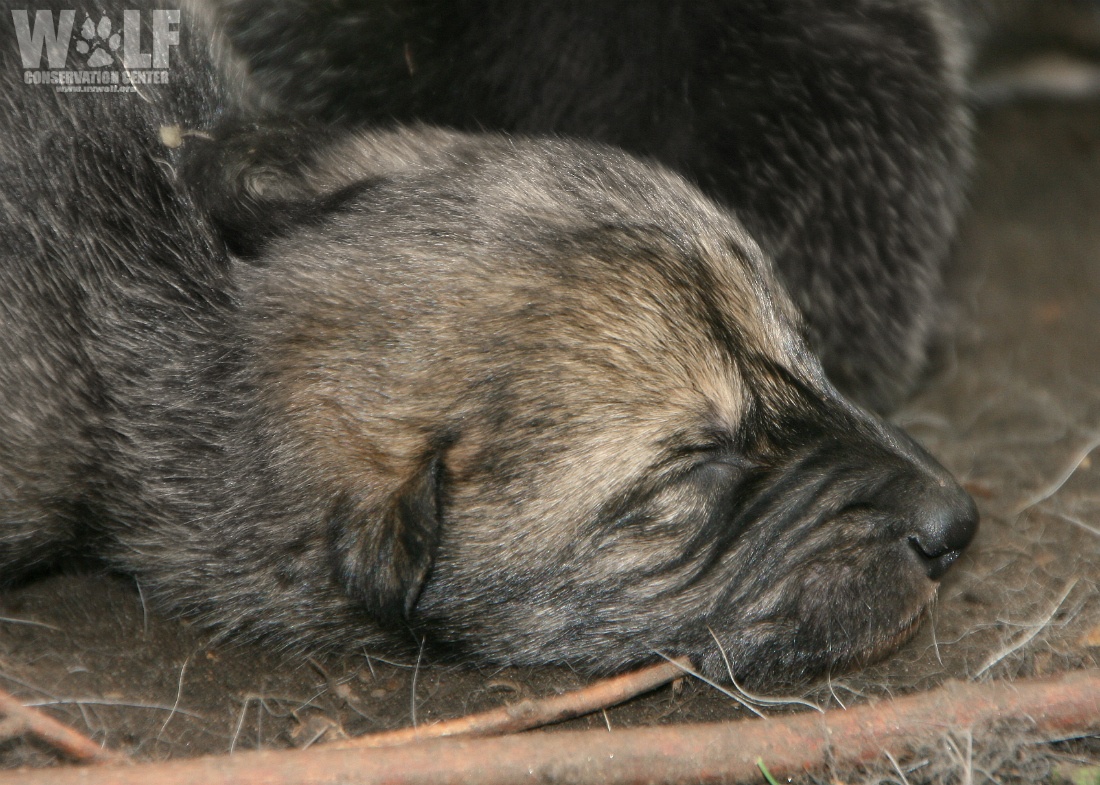
A critically endangered Mexican gray wolf living at the Wolf Conservation Center (WCC) made a priceless contribution to the recovery of her rare and at-risk species on Monday – she had pups! On May 22, Mexican gray wolf F1226 (affectionately nicknamed Belle by supporters) gave birth to a litter of three pups – each no larger than a Russet potato. This is the second litter born to mom (age six), and dad, (age nine).
Although F1226 is currently keeping her newborns out of sight, WCC staff anticipates the precious pups will begin to emerge in a few weeks and be visible to a global audience via live webcams.
Beyond being “adorable,” the pocket-sized predators represent the Center’s active participation in an effort to save a species on the brink of extinction.
The WCC is one of more than 50 institutions in the U.S. and Mexico participating in the Mexican Wolf Species Survival Plan – a bi-national initiative whose primary purpose is to support the reestablishment of Mexican wolves in the wild through captive breeding, public education, and research.
Because the entire existing Mexican wolf population descended from just seven founders rescued from extinction, genetic health is the primary consideration governing not only reproductive pairings, but also captive-to-wild release efforts. Although both components are equally critical to Mexican wolf recovery, release events are far less frequent than successful breeding.
Mexican wolf F1226's newborns are not eligible for wild-foster, the timing of the litter is relatively late compared to wild-born pups.
“Although we hoped pups from our center would receive the ‘call of the wild’,” said Rebecca Bose, WCC Curator. “We’re elated that there have been foster events from other facilities this year! Pup-fostering is an incredibly effective tool for augmenting the genetic health of the wild population.”
“Maybe next year some lobo pups from the WCC will get this amazing opportunity,” said Maggie Howell, WCC Executive Director. “In the meantime, we’re counting on USFWS to continue with releases beyond pup season because recovery demands releasing more family groups into the wild too.”
For more information, visit their website.